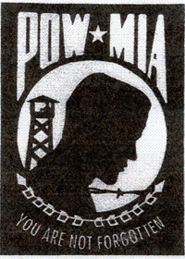Scott Tells Of Escape From Nazis
Suffered Hardships Of 52-Day Walk
The following story taken from the Clarinda, Iowa, Herald of June 18, will be of interest to many local folks who are acquainted with S. Sgt. Harold F. Scott, recently released from a German prison camp. The story is as follows:
S. Sgt. Harold F. Scott, son of Mr. and Mrs. Ed Scott, 118 West Washington [Clarinda], called the Herald-Journal last week and asked for a reporter. Much speculation was aroused by the request and a newsman was sent immediately. At the bottom of Harold’s trouble was the problem of telling the home folks about his adventures in a German prison camp and his escape from it. It seems that many people want to know all about Harold’s experiences and he related them so often that he leaves out very interesting facts, and now if he could just tell it to the public at one sitting, a big load would be lifted from his chest.
Sgt. Scott was a gunner on a bomber that roved over Europe, Germany especially, doing its bit in the war effort. But on June 14, 1944, the big bomber had bad luck as it was on a mission over Budapest, Hungary, when a burst of flak knocked two motors out of operation and a piece hit Scott in the arm just above the elbow. The crew managed to keep the big plane going for an hour before they were forced to crash land, but this time in Yugoslavia. Had they been able to stay in the air a bit longer they would have been able to come down in territory controlled by Tito’s partisan forces. As it was they were in Nazi-occupied regions and were surrounded by Nazi troops.
Nazis Shot At Them
The Nazi forces did not capture them for about 2 hours, but each time the fliers raised their heads the Nazis would shoot at them. Scott didn’t figure out why they were shot at and not killed when they were finally captured.
Scott was placed in a prison camp at Stettin, Germany, far north of Berlin where the prisoners were fattened on a potato or two each day, with a slice of black bread for dessert. Treatment by the German soldiers who were fighting, or had been, was better than by other German guards.
When the Russians continued to push closer to Berlin, the Nazis thought it best to move the American prisoners and the boys started for a camp near Hamburg. If the reader looks at the German map, it will be noticed that the distance from Stettin to Hamburg is considerable, especially on potatoes and bread, but the journey was taken on foot and ended after a 52 day walk. Rations were a bit better on the march, said the sergeant, because the Nazis gave them a slice of horse meat now and then.
Start Retreat From English
No sooner had the Yank prisoners arrived at Hamburg then the English began to threaten that port and the Germans had to think now of moving their prisoners away to the east to “escape” capture by the Tommies. After a 10-day stop at Hamburg, Scott was in his way again, as the fugitive group started toward the Elbe river.
On the eighth day of marching toward the Elbe, Scott and a companion, Sgt. Ora Woodson, Mountain View, Missouri, planned their escape. While the Nazis stopped the group to rest, Scott and Woodson pretended to be picking up sticks, and in so doing they found a hole big enough to conceal them, so in they went. There they waited until the guards marched the other prisoners on.
As the two escapees came out of their hole, they were surprised to see a German civilian standing nearby. In fact they were so surprised that they left that spot in a hurry, making their way up a creek to throw off any dogs that may be sent after them. Later in the evening they returned to get their bundle of belongings only to find them gone.
Without Food 5 Days
For five days they wandered in the woods with nothing to eat but a couple of raw potatoes. Occasionally they saw a rabbit or a bird nearby but they had no luck in catching them.
One day the two men were picked up by 7 German soldiers, one an officer. Instead of being taken into custody, Scott and Woodson were directed toward the English lines.
Because of their great hunger the two men were forced to stop at a farmhouse to ask for food. To their astonishment they were introduced to an English speaking woman who invited them to her home. “Her house” proved to be a fine dwelling, and in Scott’s opinion she and her husband were well-to-do Germans. After telling [Page 6] Scott and Woodson that they would probably all be killed if found by the Nazis now, she volunteered to keep them at her home until the English moved into the locality.
There the German woman and her husband treated the two American lads well, feeding them potatoes and eggs and a lighter shade of bread. They hid in the woods during the day, and slept in a cabin at night. Three days later the English passed through [a] town one mile away, so Scott and his pal returned then to Allied hands.
Sgt. Scott thinks the German people ate better than the prisoners but not much better as “they were really up against it.”
Scott and his pal, Woodson, returned to America together after being together since their capture , one day apart as they were not in the same squadron.
Sgt. Scott will report to Miami Beach, Florida, July 27 for further assignment if his furlough is not extended.
Source: Adams County Free Press, Corning, Iowa, Thursday, June 28, 1945, Pages 1 & 6
![]()

